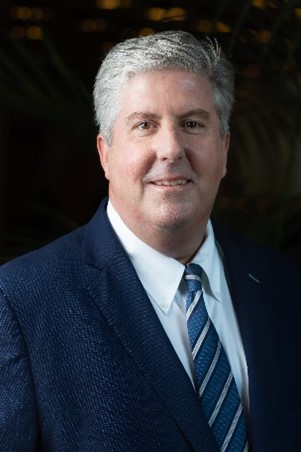Ask Howden Private Wealth
Published
Read time
What are your clients' common giving goals and why is life insurance a powerful tool for planned giving?
Christina Cheng
Managing Director, Hong Kong and Switzerland Office
ccheng@howdengroup.com
In my career, I have had the privilege of working with numerous successful entrepreneurs in their family planning endeavours. Each family has its own unique journey and story of success to share.
A “Planned Giving Project”
Succession planning is commonly associated with planning for the transfer and distribution of wealth to the next generations after one's lifetime. However, it can also encompass a "Planned Giving Project" where clients can plan during their lifetime to allocate a certain amount of their wealth for charitable or philanthropic purposes. During these discussions, I often witness my clients involving their next generations, which serves as a valuable opportunity for family education. It is important to empower the next generations and instil in them a sense of involvement in managing the family's wealth.
Life insurance as a way of giving
I vividly recall a scenario just before the pandemic when one of my ultra-wealthy clients engaged in a succession planning discussion with myself and a team of wealth and tax advisors. For years, the client had contemplated allocating a portion of cash for donation to various charitable organisations, but had never executed the plan. In response, we proposed the use of life insurance to support his philanthropic endeavours. Initially, the client was sceptical about the idea, as he believed he had sufficient cash for the donations.
As financial advisors, it is our responsibility to help clients balance and prioritise their various goals, creating a comprehensive plan that accommodates the entire family and minimises disagreements. Life insurance provides a solution by allowing individuals to designate specific charitable organisations through their family trust, using a cash premium with a multiplier effect. This way, the client does not need to allocate the full amount of the donation in cash for their charitable goals. One of the most significant advantages is that the insurance proceeds are paid out in cash directly to the family trust, bypassing legal probate procedures. This approach helps mitigate potential family disputes or other complications while allowing individuals to fulfil their wishes for planned giving.
Looking ahead
In the post-pandemic era, despite a decline in the average net worth of private clients due to market volatility, there has been an increase in charitable giving compared to pre-pandemic times. Utilising life insurance for charitable giving not only promotes family values but also creates a lasting legacy while providing tax benefits.
In this issue, our team of Consultants discusses essential strategies for effectively planning for foreign beneficiaries, ensuring compliance, and minimising tax implications during wealth transfer. Read on to learn more.
How can high-net-worth individuals ensure the seamless and timely cross-border wealth transfer to their foreign beneficiaries?

J. Devin Birmingham
Managing Director, Estate Planning Consultant, Switzerland Office
dbirmingham@howdengroup.com
Life insurance is a powerful tool for high-net-worth individuals (HNWIs) to ensure seamless cross-border wealth transfer to foreign beneficiaries. It bypasses many complexities associated with probate, taxes, and legal challenges across jurisdictions while creating liquidity for families or businesses when needed.
Key Benefits of Life Insurance in Cross-Border Wealth Transfer:
- Efficiency: Life insurance payouts are generally processed quickly after death, ensuring timely transfer of wealth to beneficiaries.
- Privacy: Life insurance payouts typically remain confidential.
- Global Applicability: Life insurance is universally recognized financial tool, making it an effective option for wealth transfer across jurisdictions.
Strategies for Incorporating Life Insurance into Cross-Border Wealth Transfer Plans:
- Permanent Life Insurance Policies: Universal or whole life insurance provide lifetime coverage and accumulate cash value, making them ideal for long-term planning.
- Portability across Jurisdictions: Policies are often portable and valid across multiple jurisdictions, ensuring that coverage remains intact even if the policyholder or beneficiaries relocate.
- Tax Benefits: In many jurisdictions, life insurance death benefits are exempt from income tax, reducing tax liabilities on foreign beneficiaries and facilitating the smooth transfer of wealth.
- Probate Bypass: Life insurance payouts typically bypass the probate process, expediting the transfer of assets to beneficiaries.
- Irrevocable Life Insurance Trusts (ILIT): For U.S. citizens, placing life insurance in an ILIT removes death benefits from the taxable estate, reduce potential estate taxes, and shield proceeds from creditors. This is especially beneficial for cross-border wealth transfers, where assets may be exposed to different tax and legal systems.
- Customised Distribution: ILITs allow for tailored distribution schedules, protecting foreign beneficiaries from potential tax liabilities or forced heirship laws that may apply in certain jurisdictions.
- Ownership Structure: Aligning the policy ownership of the life insurance policy with a trust or offshore entity, can help avoid adverse tax consequences, particularly for those residing in high-tax jurisdictions.
- Tax-Free Access to Cash Value: Certain policies allow borrowing against the cash value tax-free, facilitating wealth transfer during the policyholder’s lifetime.
It is important to note that foreign beneficiaries may be subject to taxes on life insurance proceeds depending on the jurisdiction. Careful planning and compliance with local tax laws, along with leveraging tax treaties can help mitigate these impacts and ensure a smooth transfer of wealth across borders.
How do the estate tax and inheritance tax policies of different jurisdictions impact the asset transfer strategy for high-net-worth individuals with foreign beneficiaries?

Kennedy Ho
First Vice President, Hong Kong Office
kennedy.ho@howdengroup.com
In the intricate world of cross-border wealth transfer, the interplay of estate tax and inheritance tax policies across multiple jurisdictions significantly shapes legacy planning for high-net-worth individuals with foreign beneficiaries. Below are some key considerations to ensure effective wealth preservation and transfer:
1. Provision for Liquidity
Ensuring adequate liquidity for your family members to cover potential inheritance taxes is paramount. High-net-worth clients should proactively maintain sufficient liquid assets or secure insurance policies to address unexpected tax liabilities, thus safeguarding beneficiaries from financial strain during the wealth transfer process.
2. Beneficiary Designations and Probate Avoidance
Directly designating beneficiaries can simplify the wealth transfer process, bypassing complex probate procedures, enabling a swift and efficient transfer of assets across different jurisdictions.
3. Asset Diversification
Diversifying assets across multiple jurisdictions can reduce geographical political and economic risks while optimising wealth preservation. High-net-worth individuals can leverage on life insurance solutions to safeguard wealth for future generations.
4. Tax-Efficient Planning
Efficient tax planning is crucial, particularly where the first-generation originates from low-tax jurisdictions such as Hong Kong or mainland China, and the second generation resides in high-tax jurisdictions. By leveraging tax treaties, optimising ownership structures, and utilising tax-efficient vehicles, families can minimise or eliminate inheritance tax liabilities when transferring assets to the next generation.
In conclusion, understanding and addressing the complexities of cross-border estate and inheritance tax laws is crucial for effective wealth transfer. By prioritising liquidity provision, beneficiary designations, asset diversification, and tax-efficient planning, high-net-worth clients can optimise their asset transfer strategies, minimise tax liabilities, and ensure a smooth transfer of wealth to future generations.
What role do you play in advising high-net-worth individuals on foreign beneficiaries planning?

Datin Sharon Rusby
Director, Private Wealth Malaysia Office
sharon.rusby@howdengroup.com
This topic holds both professional and personal significance for me, as I have first-hand experience navigating the complexities of cross-border wealth distribution. My father, a British citizen, and my mother, a Malaysian national, have been managing inheritance and taxation across two distinct legal systems for over two decades. The ever-changing tax landscape has made this a complex and often costly process.
When advising high net worth individuals, I emphasise the importance of understanding the diverse inheritance tax laws and the implications of treaties between countries. These factors can significantly impact beneficiaries residing in different jurisdictions.
By working closely with our in-house tax counsel, we assist clients in structuring their estate plans to minimise legal complications, such as probate issues, that could delay or disrupt wealth transfer to foreign beneficiaries. Our suite of products is designed to address these challenges, ensuring our clients achieve their legacy planning objectives.
Insights from our Consultants

Hamzeh Odeh
Senior Director, Estate Planning Consultant, Dubai Office
hoden@howdengroup.com
Families in the Gulf Cooperation Council (GCC) countries often encounter significant challenges when transitioning leadership roles and decision-making responsibilities across generations. One prominent challenge is the clash between traditional values and modern expectations. In many GCC families, traditional patriarchal structures have long governed decision-making, but younger generations may aspire for more inclusive and democratic approaches.
Additionally, there's often a tension between preserving family legacy and adapting to changing market dynamics. The younger generation might seek innovation and diversification, while the older generation may prioritise stability and continuity. This divergence in priorities can lead to conflicts and hinder smooth transitions.
To help families navigate these challenges, several strategies can be employed.
Firstly, implementing structured succession planning processes can mitigate uncertainty and minimise potential conflicts. Establishing clear protocols for leadership transitions, including mentorship programs and leadership development initiatives, ensures a smooth transfer of responsibilities.
Secondly, fostering a culture of adaptability and flexibility is essential. Emphasising the importance of embracing change and innovation helps reconcile traditional values with contemporary realities.
Finally, implementing the proper financial tools to ease the transition period and allow for proper training of the new decision makers. Such tools include Wealth Preservation and Life insurance which can be utilized as a tool to preserve family wealth across generations.
Ensuring adequate coverage for key individuals, especially those involved in leadership roles, helps protect the family's financial stability in the event of unexpected circumstances such as premature death or disability.

Grace Chan
Senior Vice President, Hong Kong Office
grchan@howdengroup.com
My clients, a couple who are founders and owners of a manufacturing business in China, have three minor children. Their primary concern is the financial impact on their family if they were to pass away prematurely. To address this, we helped them secure USD30 million in life insurance coverage on each of their lives, providing family protection, income replacement, and liquidity.
Secondly, the couple is concerned about the erosion of family wealth due to liabilities, estate duties, and potential divorce of future generations. To mitigate these risks, they settled a family trust with their children and descendants as beneficiaries, excluding their spouses.
Lastly, as the family continues to grow, they are concerned about the dilution of their family wealth from legacy transfer. To tackle this, we helped arrange life insurance coverage on the lives of each of their children, starting with USD10 million sum assured per child, based on the couple’s own coverage. This coverage can be increased as the children mature and can justify a larger sum assured. The family trust is the owner, payor, and beneficiary of all these life insurance policies, ensuring that the family's wealth is protected and can be seamlessly passed on to future generations.
With this comprehensive set up, the clients and their second generation built a lasting legacy by keeping the fortune in the family for generations. With future generations continue to arrange life insurance coverage on their lives, they effectively utilised trust as an asset vault with life insurance to establish and sustain multi-generational wealth.

Connie Chong
First Vice President, Singapore Office
cchong@howdengroup.com
When engaging in discussions about wealth and inheritance with families, it’s essential to foster an environment of transparency and understanding across all generations. Here’s how I approach this sensitive yet crucial topic:
1. Establish a Foundation of Trust:
Trust is the cornerstone of any meaningful conversation about wealth and inheritance. I begin understanding their needs. concerns, and expectations. This foundation of trust ensures that everyone feels comfortable sharing their thoughts and perspectives openly.
2. Facilitate Open Communication:
I encourage families to engage in open and honest communication with their family members. This involves creating a safe space where each member can express their views and develop a comprehensive plan that aligns with their long-term goals.
3. Address Intergenerational Differences:
Different generations often have varying perspectives on wealth and inheritance. I tailor discussions to meet the unique needs of each generation. For example, younger family members may need more guidance on protection and safeguarding their assets, while older members may focus on legacy and philanthropic goals.
4. Encourage Regular Reviews:
Wealth and inheritance plans should evolve with changing family dynamics and financial landscapes. I advocate for regular reviews of the plan to ensure it remains relevant and effective. These periodic reviews provide an opportunity to address new concerns, and reaffirm the family’s commitment to their shared goals.

Lofee Lo
Vice President, Hong Kong Office
llo@howdengroup.com
As interest rates begin to stabilise, private clients should carefully evaluate their financial goals and align their investment strategies accordingly. By considering these key factors, clients can navigate the changing interest rate landscape and position themselves for financial stability and growth.
1. Diversifying the portfolio across various asset classes and geographic regions is crucial to mitigate risks and capture potential growth opportunities.
2. Monitoring interest rate trends and projections is essential. Staying informed about economic indicators and central bank policies can help clients make rational decisions about their portfolios.
3. Working closely with financial advisors becomes even more important during this period. Advisors can help navigate market uncertainties and provide personalised guidance on clients’ wealth management goals.
4. Assessing debt exposure is another key consideration. Clients should review their existing debt obligations and consider refinancing options if appropriate. Taking advantage of lower interest rates can help reduce interest expenses and enhance overall financial stability.
5. Maintaining an emergency fund is crucial for unexpected expenses or economic downturns. A well-funded emergency reserve provides a safety net and prevents the need for hasty financial decisions during challenging times.
6. Private clients should stay focused on long-term goals and avoid reacting to short-term interest rate movements. Making impulsive investment decisions based on short-term market fluctuations can hinder progress toward wealth accumulation and financial stability.

Toh Pei Shan
Senior Vice President, Singapore Office
pstoh@howdengroup.com
When evaluating the long-term benefits of life insurance policies, it is essential to consider the relationship between inflation and interest rates.
Inflation can gradually reduce the value of policy benefits over time, diminishing their purchasing power. Conversely, in a high-interest-rate environment, while borrowing costs may rise, policy premiums often remain competitive, potentially leading to higher expected returns.
This highlights the importance of regular policy reviews and updates to ensure the coverage remains relevant in the face of evolving economic conditions and personal circumstances. Additionally, it provides opportunities to adjust coverage or diversify into long-term savings plans when required.
A recent client experience provides a clear example of the impact of inflation on financial decisions. Reflecting on a past choice to use funds from a policy purchased 15 years ago for a single large purchase, the client realised that the purchasing power of those funds had diminished over time. This underscores the importance of proactive planning to address inflation effects on long-term financial goals.

Kenny Ho
Senior Vice President, Hong Kong Office
kho@howdengroup.com
Building an emergency fund is essential as it provides a financial cushion to cover unexpected expenses or loss of income. It is always a good idea to set aside twelve months' worth of living expenses in a liquid and easily accessible account that my family has direct control.
As a wealth planning professional with two young children, it's important to plan for their education expenses and potential tax exposure. Taking the example of the United States, tuition and fees at private universities have risen by 134 percent in the last 20 years. Considering this trend, it is crucial to engage with appropriate savings vehicles to ensure the availability of funds when needed. Additionally, if my children decide to live abroad in the future, it is important to consider the potential tax implications. Planning for education expenses and potential tax exposure is a key part in my wealth protection strategy.
Not leaving them with any liabilities is another principle that I always remind myself of. I would always make sure that I have enough cash for them to pay off all the outstanding mortgage or other family loans, or I would prepare for that funding in forms of insurance.
Planning is an on-going process. It is crucial to have transparent communication across family members and regular review on our own wealth protection strategies. By staying proactive and adaptable, we can ensure that our family's financial well-being is protected even in the face of changing circumstances.

Ginger (Zhe Jin)
Client Servicing Manager, Switzerland Office
zjin@howdengroup.com
The way I approach wealth management is akin to a four-legged chair, with each leg serving a distinct purpose. While I'm no physicist, the idea that chairs have four legs for a reason resonates with me.
Leg 1 cradles my illiquid assets, primarily in real estate. Leg 2 supports bankable assets expertly managed by professionals, while Leg 3 safeguards cash assets for sustaining my cost of living.
The addition of a fourth leg is deliberate, housing non-market correlated insurance-related assets with guarantees, providing an extra layer of security and peace of mind for my family, irrespective of the fluctuating values of the other three legs.
My preference for Whole of Life insurance stems from its assurance of guaranteed lifetime protection, embodied in the form of a Guaranteed Death Benefit and Guaranteed Cash Value. This guarantee provides peace of mind, allowing me to redirect time and energy towards enjoying life.
Opting for Bermuda (International) insurance extends benefits beyond the financial realm. Confidential and flexible nomination and distribution to beneficiaries, coupled with international portability of the policy, holds significant importance to me.

Li Fangzhi
Head of Business Development, Singapore Office
fzli@howdengroup.com
As a single individual with no children, I proactively secured my financial future by purchasing my own place. Alongside this milestone, I invested in a Whole of Life policy for myself.
The primary motivation behind this decision is to ensure family protection, specifically for my parents and sister. In the unfortunate event of anything happening to me, the payout from the policy can be utilized to settle the remaining mortgage on the apartment or address unforeseen circumstances that may arise.
Rachael Lee
Senior Vice President, Hong Kong Office
rlee@howdengroup.com
I have recently observed two major trends:
- Insurance solutions have started to offer more lifetime features to cater for our clients’ retirement and medical needs during their golden years. The market volatility has caused our clients greater concern over their longevity needs and insurers have therefore been pushed to offer innovative features such as accumulation options, easy access to cash, medical coverage, critical illness cover, and even emergency evacuation assistance.
- Diversification in protection portfolio: Clients are fully aware there is no one size fits all solution to all their needs. Accordingly, they have started to develop a diversified insurance portfolio containing multiple product types across several insurers and jurisdictions as opposed to merely having one insurance policy.
For example, clients would consider obtaining both a whole of life policy and an indexed universal life to balance the high certainty cover with their needs for asset accumulation. Furthermore, while clients have often diversified across insurers, they are also starting to diversify across jurisdictions to spread out the asset concentration risk in different countries and to hedge against geopolitical risks.
Reuben Mashicharan
Head of International,Singapore Office
reuben@howdengroup.com
I often get asked by clients – “When is the perfect time to take out a policy? Have I missed out because of my advancing age or my deteriorating health?”… the reality is, the question clients should be asking themselves is “What are the implications to my family, business and overall wealth if I don’t have a holistic plan in place?”
An encouraging factor is that now in 2023, we have the most extensive range of HNW solutions available in the market to meet our clientele’s ever changing needs. Over the last year, we have seen clients gravitating towards the ultra conservative whole of life options and the dynamic index linked solutions based on their risk tolerance and planning requirements. Some clients even opt to diversify across these two product types to achieve a more balanced plan.
On top of this, a majority of Asian based HNW insurers are running campaigns and discounts that make the premiums and underwriting class more attractive and extremely cost efficient. If we combine this with a renewed interest in the installment plan premium payment mode and highlight the flexibility of this option in an ever changing interest rate environment, there really is no better time to put a plan into place than now.
I feel that these trends will continue into the future and the solutions available will evolve over time to best serve our clientele.
Kelvin Choo
Senior Vice President & Head, Strategic Projects, Singapore office
kchoo@howdengroup.com
Indonesia was one of the foremost adopters of the Common Reporting Standard (CRS) in 2018 in line with the global Automatic Exchange of Information (AEOI) movement. This was seen as a ground-breaking development as many HNW individuals had historically stored wealth in offshore financial centres. While preparing for CRS’ implementation, Indonesia also launched an ambitious tax amnesty program in 2016 to incentivise tax compliance and improve its fiscal position. Both developments indirectly soured the mood and attitude of HNW individuals towards offshore banking and insurance as there was great uncertainty about how those assets are to be reported and taxed.
Demand for offshore insurance from Indonesian residents therefore fell greatly between 2018 to 2022. However, with the latest voluntary disclosure programme (sometimes nicknamed at Tax Amnesty Part 2) in 2022, and with the certainty of having completed one tax cycle under the Omnibus Law, HNW clients are starting to once again, look offshore for their wealth planning and insurance needs.
We expect volumes to also pick up partially due to the reopening of borders and a pent up demand for life insurance as Covid 19, had seared in their minds, the need to protect loved ones and especially key persons and breadwinners in the family. We are also expecting greater number of second or third generation business owners seeking insurance as they had established themselves during the pandemic that they were capable of running the family business, while the aged parents sought shelter from the pandemic.
This “forced” transfer of executive management of the family businesses to the next generation will also see a natural transfer of the family’s financial wealth to the next generation. We thus expect many younger lives to be insured in the coming years. And we believe Indonesia will begin to regain the crown in SEA as the top demographic seeking wealth planning solutions.
Note: Howden Private Wealth does not provide legal or tax advice. Clients are advised to obtain independent advice tailored to their specific circumstances.
Freaderic Tan
Senior Vice President,Singapore office
ftan@howdengroup.com
"There's always an opportunity with crisis. Just as it forces an individual to look inside himself, it forces a company to re-examine its policies and practices." - Judy Smith, renown author and crisis management advisor
Just as crises have a way to reveal the character of a person, it also has a way to show up the weaknesses and strengths of an industry and the companies within. The Covid-19 pandemic caused a sea change in the banking and insurance industry, not just in cosmetic changes to processes and products offerings but in some cases the very existence of the companies.
In relation to the Thai insurance industry, it was astonishing to see how the pandemic brought about the closure of some major non-life insurers and threatened the existence of a dozen more just 18 months into the pandemic. By June 2022, at least 4 major insurers had closed down in Thailand after suffering losses from selling low cost insurance policies (note: it is important to distinguish these are non-life insurance companies). Other companies including public ones went into financial rehabilitation under the supervision of The Office of Insurance Commission after their liabilities were found to outstrip their assets.
In my career as a risk consultant, I have often been asked why clients would want to be insured by offshore insurers instead of local ones from their home country. I think that is just an extension of asking why clients would bank offshore. The reasons will overlap if not entirely identical.
We place our hard earned money where it is safest and where it offers the most value in return.
Trust matters and we found out that the world as we know it after the Global Financial Crisis (GFC) of 2008 just isn’t a very safe place. If we had depended on companies to self-regulate before, we know not to after the GFC. Consumers realised the importance of governmental intervention and the robustness and stringent application of the rule of law to govern bank, insurance companies and all financial institutions.
Whenever we forget the lessons of the GFC and let our guards down, it bites us in very painful ways like the current crypto winter is doing. So, applying what we learned from Covid and how such crises impact the insurance industry, we look not only to the financial robustness of the insurance companies but as importantly, we give weighty considerations to where these policies are issued and governed from.
To that end, Howden Private Wealth continues to work with the biggest and most trustworthy companies globally, paying attention to the governing laws, place of issuance, tax considerations of our clients and their beneficiaries. Looking inward to what is most convenient just wouldn’t do, as Howden Private Wealth continues to invest in knowledge and competencies to serve our banking partners and clients to the best we can.

Jeffrey Lee
Managing Director, Hong Kong and Switzerland Office
jlee3@howdengroup.com
Succession planning is an inevitable and critical process for every corporation. Whether it involves retaining valuable executives or identifying the next generation of talent for the company, this process is often complex and challenging.
In addition to the meticulous selection process, there is also a need to develop an attractive and compelling compensation scheme to retain candidates to remain focused and perform for an extended period. In the case of family businesses, this topic can potentially lead to more complex discussions, such as the re-allocation of company shares among family members.
Life insurance can function as a key business solution to support retention efforts by offering a substantial payment to the key executive’s family upon a life event as the beneficiary of the policy or serves as a retirement fund for them as the cash value of the policy accumulates over time.
Freaderic Tan
Senior Vice President, Singapore Office
ftan@howdengroup.com
With the ever-evolving landscape of legacy giving, it is crucial for advisors to stay attuned to the emerging trends that shape the preferences and behaviours of their clients.
One notable trend is the growing awareness of legacy giving amongst younger generation, which will likely lead to a deliberate inclusion of legacy planning as part of their overall portfolio.
This shift signifies that legacy giving is no longer the purview of the older generation making the decision, as the younger individuals are actively engaging in philanthropic decision and wealth allocation.
This highlights the need for advisors to encourage and facilitate family participation in charitable causes to ensure that their philanthropic endeavours are aligned and contribute to leave a meaningful and lasting legacy.
Christina Cheng
Managing Director, Hong Kong and Switzerland Office
ccheng@howdengroup.com
In my career, I have had the privilege of working with numerous successful entrepreneurs in their family planning endeavours. Each family has its own unique journey and story of success to share.
A “Planned Giving Project”
Succession planning is commonly associated with planning for the transfer and distribution of wealth to the next generations after one's lifetime. However, it can also encompass a "Planned Giving Project" where clients can plan during their lifetime to allocate a certain amount of their wealth for charitable or philanthropic purposes. During these discussions, I often witness my clients involving their next generations, which serves as a valuable opportunity for family education. It is important to empower the next generations and instil in them a sense of involvement in managing the family's wealth.
Life insurance as a way of giving
I vividly recall a scenario just before the pandemic when one of my ultra-wealthy clients engaged in a succession planning discussion with myself and a team of wealth and tax advisors. For years, the client had contemplated allocating a portion of cash for donation to various charitable organisations, but had never executed the plan. In response, we proposed the use of life insurance to support his philanthropic endeavours. Initially, the client was sceptical about the idea, as he believed he had sufficient cash for the donations.
As financial advisors, it is our responsibility to help clients balance and prioritise their various goals, creating a comprehensive plan that accommodates the entire family and minimises disagreements. Life insurance provides a solution by allowing individuals to designate specific charitable organisations through their family trust, using a cash premium with a multiplier effect. This way, the client does not need to allocate the full amount of the donation in cash for their charitable goals. One of the most significant advantages is that the insurance proceeds are paid out in cash directly to the family trust, bypassing legal probate procedures. This approach helps mitigate potential family disputes or other complications while allowing individuals to fulfil their wishes for planned giving.
Looking ahead
In the post-pandemic era, despite a decline in the average net worth of private clients due to market volatility, there has been an increase in charitable giving compared to pre-pandemic times. Utilising life insurance for charitable giving not only promotes family values but also creates a lasting legacy while providing tax benefits.